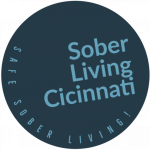In the journey toward long-term recovery, emotional well-being plays an indispensable role. Achieving it is not merely about abstaining from substances or overcoming physical dependencies; it involves cultivating a healthy mind and heart. Emotional well-being refers to your ability to manage stress, build meaningful relationships, and maintain a positive outlook on life. These aspects are crucial for sustaining recovery and preventing relapse.
When you prioritize emotional health, you are better equipped to handle life’s challenges without resorting to old habits. Emotional resilience enables you to face setbacks with a constructive mindset and helps in developing adaptive coping mechanisms. This resilience is particularly vital in recovery, as it often involves confronting past traumas or emotional triggers that could potentially derail your progress.
Moreover, emotional well-being contributes to a sense of fulfillment and purpose. By fostering emotional health, you create a foundation for a balanced and satisfying life, where recovery becomes a part of who you are rather than a constant battle. Understanding and nurturing emotional well-being can transform recovery from merely surviving to truly thriving.
The Connection Between Emotional and Physical Health
The interplay between emotional and physical health is a critical aspect of recovery. Your body and mind are intricately connected, and disturbances in one can significantly impact the other. For instance, stress and anxiety can lead to physical symptoms such as headaches or digestive issues, which, in turn, can exacerbate emotional discomfort.
Research has shown that emotional distress can weaken the immune system, making you more susceptible to illnesses. Conversely, maintaining good emotional health can enhance physical well-being. When you feel emotionally balanced, you are more likely to engage in healthy behaviors, such as exercising regularly and eating a balanced diet, which further supports recovery.
Understanding this connection underscores the importance of a holistic approach to recovery that addresses both emotional and physical aspects. By focusing on your overall well-being, you not only improve your health but also increase your chances of achieving sustained recovery. Integrating practices that promote both emotional and physical health can lead to a more harmonious and enduring recovery journey.
Common Emotional Challenges During Recovery
Recovery is fraught with emotional challenges that can be daunting but are essential to address for successful rehabilitation. One of the most common challenges is dealing with feelings of guilt and shame. These emotions often stem from past behaviors and can hinder progress if not managed effectively. Learning to forgive yourself and accept your past is a vital step toward healing.
Another prevalent challenge is facing anxiety and depression. These conditions can be both a cause and a consequence of substance abuse, making them particularly complex to navigate. It’s crucial to acknowledge these feelings and seek appropriate interventions. Therapy and support groups can provide valuable assistance in managing these emotions.
Lastly, the fear of relapse looms large in the minds of those in recovery. This fear can be paralyzing and may lead to self-doubt. Developing a relapse prevention plan and building a robust support network can mitigate this fear. By understanding and addressing these common emotional challenges, you can fortify your recovery journey and move forward with confidence.
Strategies for Enhancing Emotional Well-Being
Enhancing emotional well-being is an ongoing process that requires intentional effort and practice. There are several strategies you can employ to nurture your emotional health during recovery. Firstly, cultivating self-awareness is crucial. By understanding your emotions and triggers, you can develop more effective coping strategies. Journaling or therapy can be helpful tools in gaining this insight.
Secondly, engaging in regular physical activity is a proven way to boost emotional health. Exercise releases endorphins, which are natural mood lifters, and can reduce symptoms of anxiety and depression. Whether it’s a daily walk, yoga session, or gym workout, finding an activity you enjoy can make a significant difference in your emotional well-being.
Lastly, practicing gratitude can have a profound impact on your emotional state. By focusing on the positive aspects of your life, you shift your perspective and foster a sense of contentment. Consider keeping a gratitude journal where you write down things you are thankful for each day. These strategies, when consistently applied, can enhance your emotional well-being and support your recovery journey.
The Role of Support Systems in Recovery
Support systems are a cornerstone of successful recovery, providing encouragement, accountability, and a sense of belonging. These systems can include family, friends, support groups, and professional counselors. Each plays a unique role in offering the emotional support needed to navigate the ups and downs of recovery.
Family and friends can offer love and understanding, helping you feel valued and supported. Their involvement in your recovery can strengthen relationships and provide a safe space to express your emotions. Open communication with loved ones about your recovery goals and challenges is essential for building a supportive environment.
Support groups, such as Alcoholics Anonymous or Narcotics Anonymous, offer a community of individuals who understand your journey. Sharing experiences and learning from others who have faced similar challenges can be incredibly empowering. These groups provide a non-judgmental space to discuss your feelings and gain insights into managing recovery.
Professional counselors and therapists bring expertise in addressing the psychological aspects of recovery. They can help you explore underlying issues and develop strategies for emotional well-being. By leveraging these support systems, you can build a resilient foundation for your recovery journey.
Mindfulness and Its Impact on Emotional Health
Mindfulness, the practice of being present and fully engaged in the moment, has a profound impact on emotional health, particularly during recovery. By focusing on the present, mindfulness helps reduce stress and anxiety, common challenges in the recovery process. It encourages you to observe your thoughts and feelings without judgment, fostering a greater understanding of your emotional landscape.
Incorporating mindfulness practices, such as meditation or deep breathing exercises, into your daily routine can enhance emotional regulation. These practices help create a sense of calm and clarity, allowing you to respond to triggers and stressors more effectively. Regular mindfulness practice can lead to increased self-awareness and emotional resilience.
Moreover, mindfulness promotes a healthier relationship with your thoughts and emotions. By detaching from negative thought patterns, you can cultivate a more positive mindset. This shift in perspective can significantly bolster your emotional well-being, making it a valuable tool in achieving long-term recovery. By embracing mindfulness, you equip yourself with skills to navigate recovery with confidence and grace.
Building Resilience: Tools for Long-Term Recovery
Building resilience is essential for sustaining long-term recovery. Resilience is the ability to bounce back from adversity and adapt to change, a crucial skill in the face of recovery’s inevitable challenges. Developing resilience involves cultivating a growth mindset, where you view setbacks as opportunities for learning and growth.
Several tools can aid in building resilience. Firstly, setting realistic goals can provide a sense of direction and purpose. By breaking larger goals into manageable steps, you can achieve a series of small victories that boost confidence and motivation. Celebrating these achievements reinforces your resilience and commitment to recovery.
Another tool is practicing self-compassion. By treating yourself with kindness and understanding, you mitigate the harsh inner critic that often accompanies setbacks. Self-compassion fosters a positive self-image and encourages perseverance.
Lastly, engaging in creative outlets, such as art, music, or writing, can be therapeutic and enhance resilience. Creative expression allows you to process emotions in a constructive manner, providing an emotional release that supports recovery. By utilizing these tools, you can build resilience and fortify your long-term recovery journey.
Seeking Professional Help: When and Why
Knowing when to seek professional help is a critical aspect of maintaining emotional well-being during recovery. Professional support can provide the guidance and expertise needed to address complex emotional challenges that may arise. If you find yourself feeling overwhelmed by emotions or unable to cope with daily stressors, it may be time to seek professional assistance.
Therapists and counselors offer a safe space to explore underlying issues and develop coping strategies tailored to your needs. They can help identify patterns of thought and behavior that may hinder your progress and work with you to create effective solutions. Professional support can also be invaluable in managing co-occurring mental health conditions, such as anxiety or depression.
Reaching out for professional help is a proactive step in prioritizing your emotional well-being. It demonstrates a commitment to your recovery and acknowledges the importance of comprehensive care. By seeking professional support, you equip yourself with the tools and resources necessary to navigate recovery with confidence and resilience.
Conclusion: Prioritizing Emotional Health for Lasting Recovery
Prioritizing emotional health is paramount in achieving lasting recovery. By understanding its critical role and actively nurturing your emotional well-being, you lay the groundwork for a balanced and fulfilling life. The journey of recovery is complex, but with a focus on emotional resilience, support systems, and mindfulness, you can navigate challenges with grace.
Remember, recovery is not a destination but a continuous process of growth and self-discovery. Embracing emotional well-being as a core component of your recovery journey empowers you to thrive. Take the time to invest in your emotional health and recognize its profound impact on your overall well-being.
As you move forward, consider integrating the strategies and tools outlined in this article into your daily routine. By doing so, you not only enhance your emotional well-being but also pave the way for a successful and enduring recovery. Call us today at 855-675-1892.













